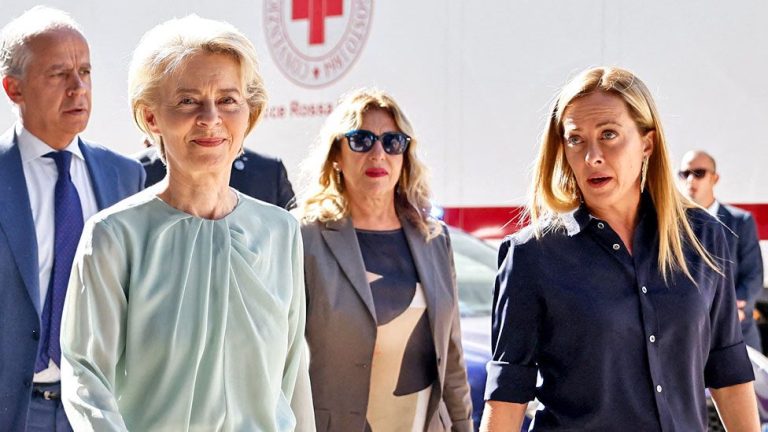Introduction
The issue of migration policy within the European Union (EU) has reached a critical juncture, testing the very seams of its unity. The absence of a cohesive and effective common migration policy has exacerbated tensions among member states, particularly amid unprecedented levels of migrant arrivals and asylum requests since 2015. This essay delves into the complexities of the current situation, analyzing the challenges faced by the EU and advocating for pragmatic solutions grounded in the principles of human rights and solidarity.
Background
In 2015, Germany made a historic decision to welcome one million migrants fleeing primarily from the war in Syria. However, eight years have passed since then, and Europe has yet to implement a sustainable strategy to manage the ongoing influx of migrants. The lack of a unified approach has not only led to a humanitarian crisis but has also fueled internal tensions and strained relations among neighboring countries.
Escalating Numbers and Pressing Challenges
The numbers paint a stark picture of the magnitude of the migration crisis facing Europe. In August of last year, Frontex reported a peak of 56,911 migrant arrivals in a single month, surpassing the previous record set in 2022. Additionally, Eurostat data indicates that asylum requests in 2022 approached one million, a figure only exceeded during the height of the Syrian war in 2015 and 2016.
The situation is particularly dire in certain EU territories. For instance, in just the second week of September, approximately 14,000 individuals arrived on the Italian island of Lampedusa, which has a population of only 6,000. Similarly, the Canary Islands have witnessed a significant surge in the arrival of boats carrying migrants, with over 14,000 individuals landing on the islands by mid-September, more than triple the figure from the previous year. Meanwhile, the Greek island of Lesbos continues to receive around 1,300 migrants per month, raising concerns about the adequacy of the refugee camps in adhering to EU standards of rights and freedoms.
Political Stalemate and Bilateral Disputes
Despite the escalating crisis, EU member states find themselves embroiled in bilateral disputes and political stalemates, further hindering efforts to enact meaningful reform. Germany’s recent demand for explanations from Poland regarding the alleged sale of visas to irregular migrants, and Poland’s subsequent accusations of interference in its electoral process, exemplify the discord plaguing European cooperation on migration issues. Moreover, countries like Poland and Hungary continue to resist efforts to establish a common asylum framework, perpetuating the impasse in EU policy reform.
The Need for Rational and Realistic Solutions
At the heart of the migration debate lies the fundamental rights of individuals to mobility and asylum. Addressing these issues requires a rational and realistic approach that not only manages the flow of migrants but also safeguards human dignity and upholds EU principles of freedom and rights. It is imperative to recognize that Europe cannot turn a blind eye to the growing humanitarian crisis, nor can it afford to ignore the demographic realities that necessitate the arrival of migrants to sustain its workforce and economy.
Crafting a Unified EU Response
Achieving a coherent and effective EU migration policy demands a multifaceted approach. Firstly, there is a need for greater solidarity among member states, with a fair distribution of responsibilities for hosting and resettling migrants. This includes bolstering support for frontline countries like Italy, Greece, and Spain, which bear the brunt of migrant arrivals. Secondly, investment in robust border control mechanisms and enhanced cooperation with transit and origin countries is essential to stem irregular migration flows. Thirdly, addressing the root causes of migration, such as conflict, poverty, and climate change, requires long-term strategies that promote stability and development in migrant-sending regions.
Strengthening Legal and Institutional Frameworks
In addition to immediate measures, strengthening the legal and institutional frameworks governing migration is crucial. This entails reforming the Common European Asylum System to ensure a fair and efficient asylum process, with timely and uniform decisions across member states. It also involves enhancing the capacity of EU agencies like Frontex and Europol to combat human trafficking and smuggling networks, which exploit vulnerable migrants.
Promoting Integration and Social Cohesion
Integration lies at the heart of successful migration policies. Efforts to facilitate the social and economic integration of migrants into host communities are vital for fostering social cohesion and mitigating the risks of marginalization and radicalization. This requires investment in language training, education, and employment opportunities, as well as initiatives to promote intercultural dialogue and mutual understanding.
Combating Xenophobia and Far-Right Extremism
Addressing the rise of xenophobia and far-right extremism is a pressing concern in the context of migration. Politicians and civil society actors must actively counter divisive narratives and misinformation that demonize migrants and perpetuate fear and hostility. Moreover, measures to strengthen democratic institutions and protect fundamental rights are essential for safeguarding the values of tolerance and pluralism that underpin the European project.
Conclusion
The migration crisis facing Europe demands urgent and concerted action. It is not merely a test of the EU’s ability to manage borders and allocate resources but a moral imperative to uphold the dignity and rights of all individuals, regardless of their nationality or migration status. By embracing solidarity, pragmatism, and respect for human rights, Europe can navigate the complexities of migration and emerge stronger, more united, and true to its founding principles. Only through collective action and shared responsibility can the EU fulfill its promise of a more inclusive and compassionate future for all.


